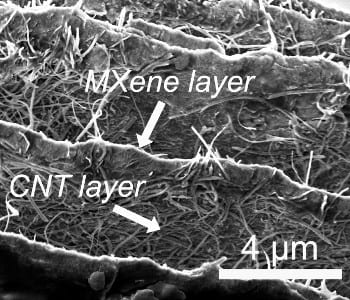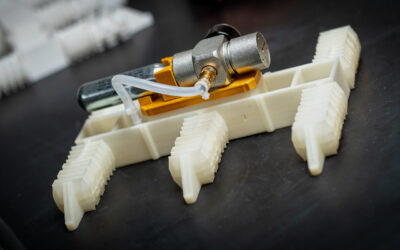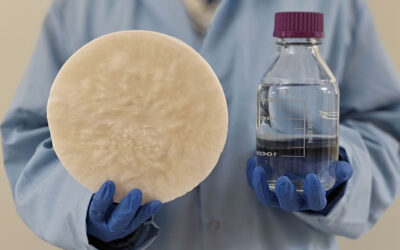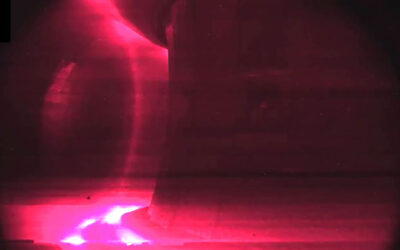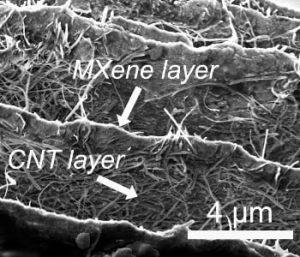 With increasing demand for portable and wearable electronics, improving the energy density per unit of volume of energy storage devices, such as supercapacitors, has been considered as a primary goal. MXenes, a novel family of two-dimensional metal carbides, have demonstrated their potential as promising electrode materials for supercapacitors, with volumetric capacitance exceeding commonly used carbon materials.
With increasing demand for portable and wearable electronics, improving the energy density per unit of volume of energy storage devices, such as supercapacitors, has been considered as a primary goal. MXenes, a novel family of two-dimensional metal carbides, have demonstrated their potential as promising electrode materials for supercapacitors, with volumetric capacitance exceeding commonly used carbon materials.
In order to further improve the rate performance of MXene-based supercapacitors, flexible MXene/carbon composite papers composed of alternating layers of titanium carbide-based MXene and carbon nanoparticles, such as nanotubes, have been fabricated. When employed as electrodes for supercapacitors, a capacitance of ~440 F/cm3 was achieved in aqueous electrolyte. Besides, the composites showed ~75% increase in rate performance compared to pure MXene films and exhibited no capacity degradation after 10,000 cycles. These conductive, flexible and sufficiently strong papers may also find use as electrochemical actuators, electrode materials for Li-ion batteries, fuel cells, and other energy devices.

